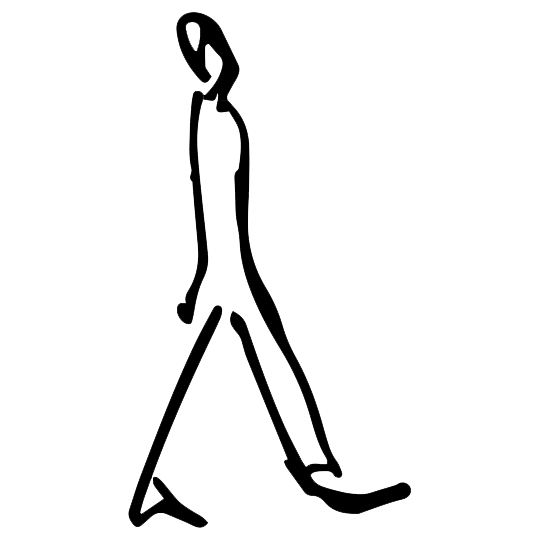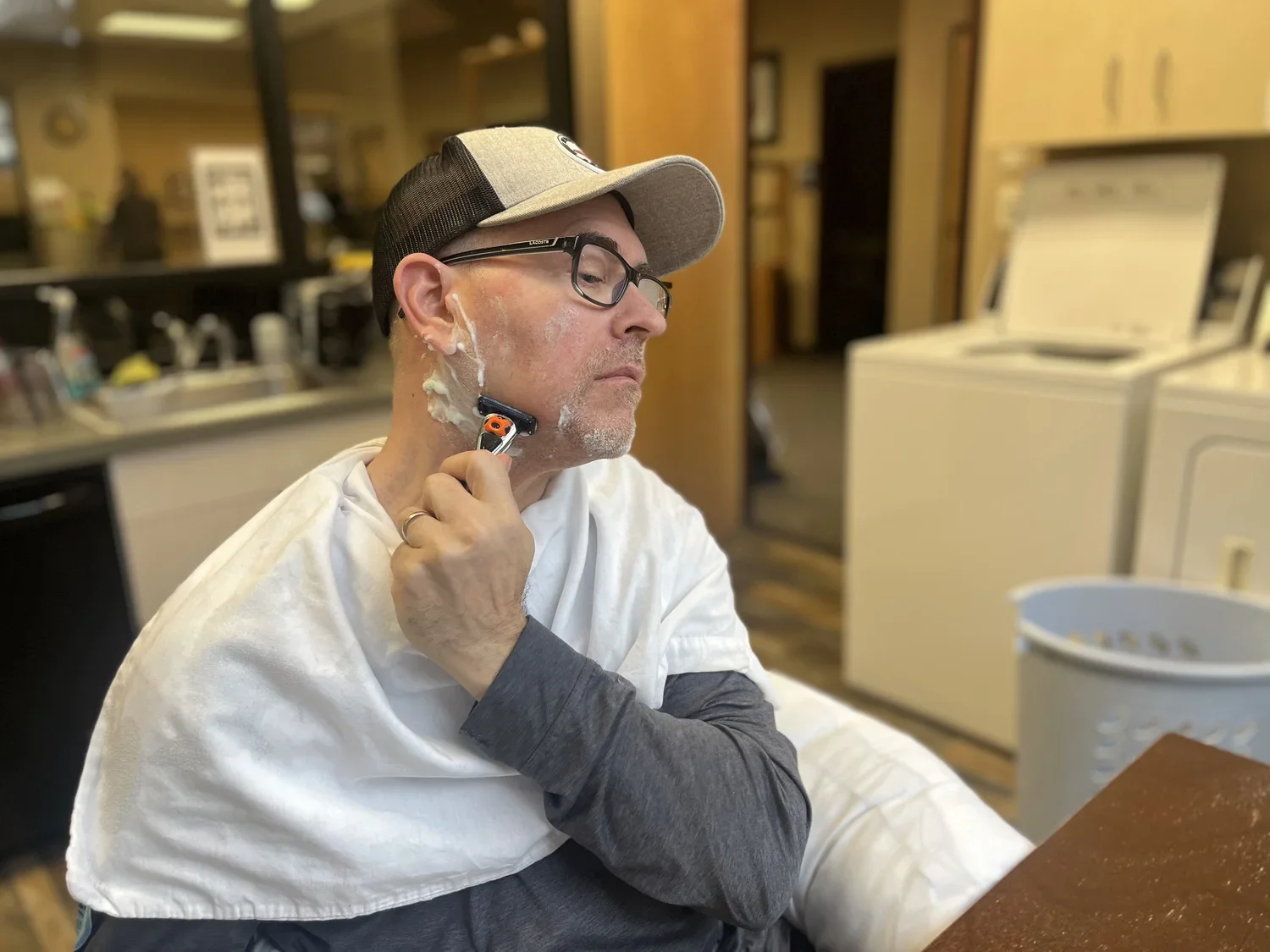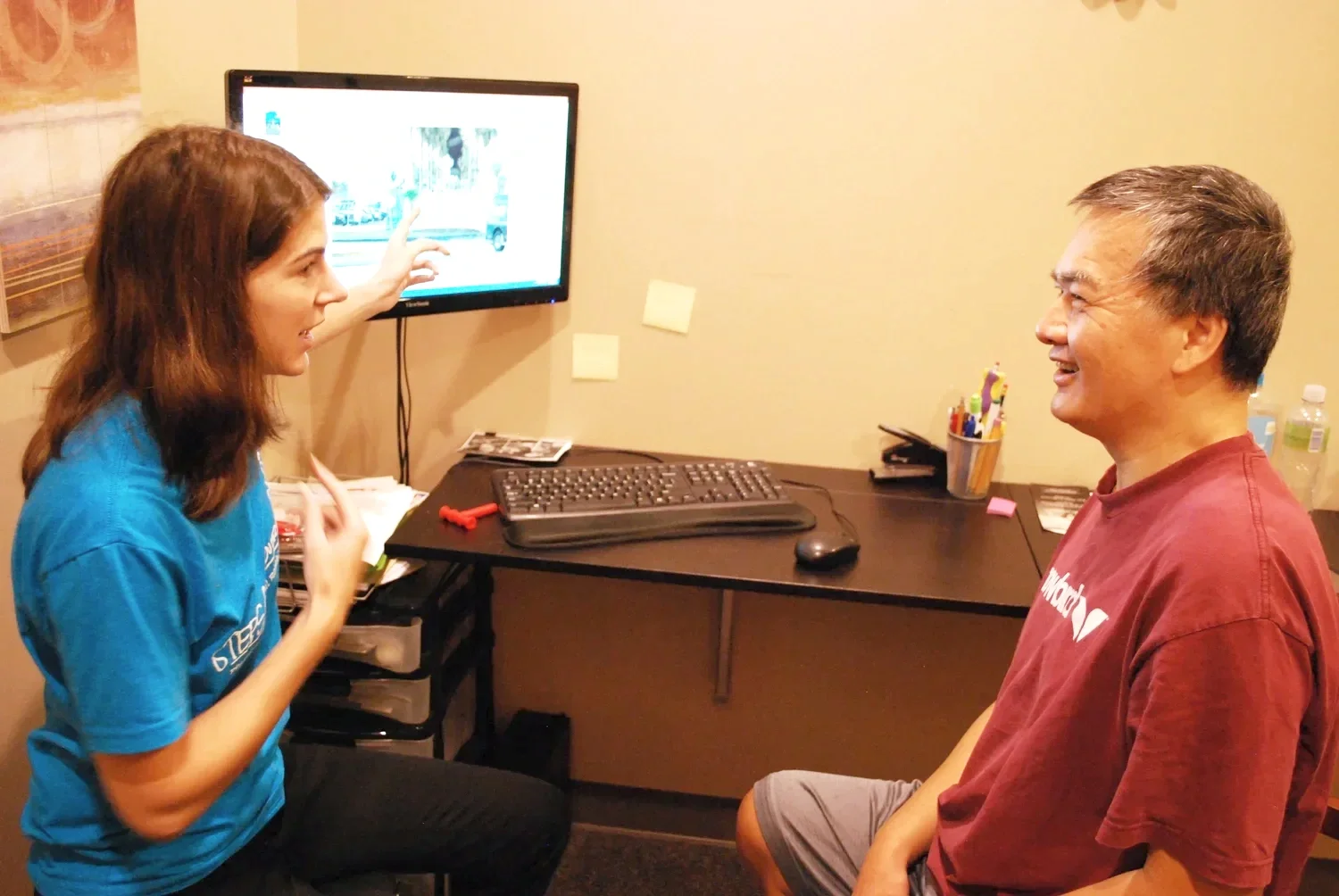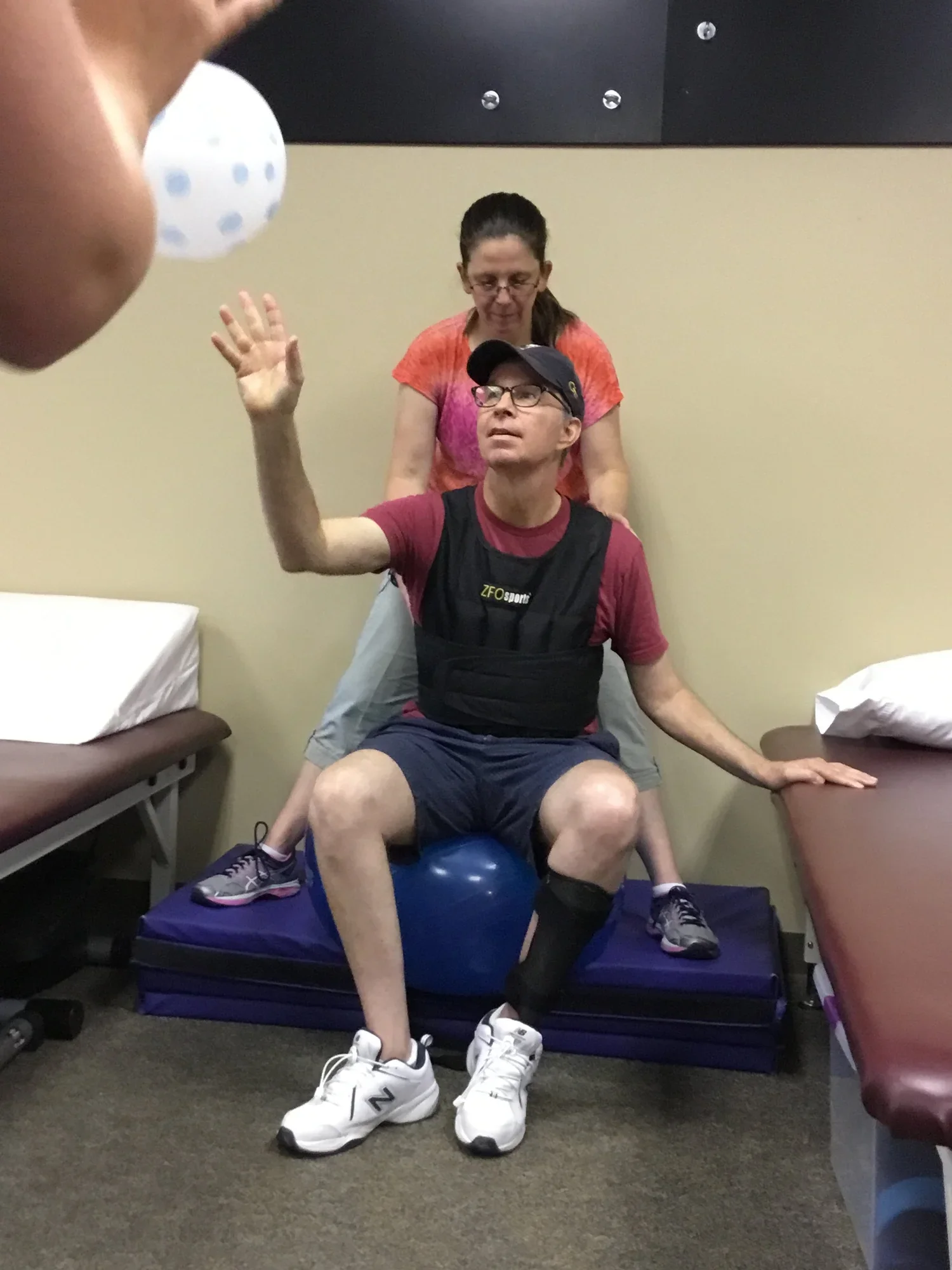
Stroke & Brain Injury
"They told me I wouldn't get any better."
At STEPS for Recovery, we offer rehabilitation for people with a variety of neurologic deficits, but we specialize in the treatment of stroke and brain injury.
Our therapists have pursued advanced and specialized training in the rehabilitation of walking, arm function, hand function/fine motor control, language, swallowing, cognition, and overall function in life activities after a brain injury. Using a restorative philosophy that draws on the most effective treatment approaches, our therapists have helped many patients regain movement, speech, and independence both immediately after a stroke or brain injury and also many years post-injury.




There has been a tremendous amount of research over the last 25 years that looks at the ability of the brain to change and recover after an injury. This is called neuroplasticity.
What we have learned from this research is that the brain is capable of changing and adapting depending on the stresses or influences placed upon it, regardless of the amount of time since injury, and that you have to “use it” or you will “lose it.” What this means for you is that even if your stroke or brain injury occurred a long time ago, it is still possible to make changes. But once you start to make those changes, you will have to practice, practice, practice so that you can integrate what you are learning and it can become a part of you.
If your injury was a long time ago, you will have many challenges to overcome. If muscles and other soft tissue are tight and contracted or bones have changed shape, it may impact your ultimate outcomes. Likewise, if you have developed cognitive or communicative dependence on a spouse or caretaker, these habits may be more difficult to overcome.
From a rehabilitation perspective, while we may be able to make a change in the way that you move or communicate during your therapy session, carryover to your life outside of therapy will depend on how, and how much, you practice on your own. This is true even if your injury was a short time ago. But if you have been compensating with your less affected side, or you rely on caregivers to communicate or organize, you will have to work hard to change habits and ways of moving that have been a part of you since your injury. It will take discipline and dedication, but it can be done.
We recognize that every person’s needs are unique, so every person gets individualized treatment. Incorporating each person’s interests into therapy as much as possible leads to better participation in the process and a more enjoyable experience overall. We truly believe that “Life is Therapy,” so when we are able to utilize a person’s hobbies and interests to promote movement, communication, and function, rehabilitation becomes not a series of exercises to perform every day, but a series of activities that are relevant to the person and also therapeutic at the same time.
Research in the field of neuroscience has taught us that the best results are achieved when activities are relevant and meaningful and when they are repeated often. It’s much easier to practice an activity that you enjoy and are motivated to return to!
The rehabilitation process is an interactive process that depends on the participation of all members of the team, from the therapist and other medical professionals to family, friends, and caregivers, but most importantly, the patient! Therapy is the time to initiate and refine movement, communication, and life skills to progress your program, but the real work is done in the days and hours between sessions. Home practice and follow-through on exercises, activities, and therapy recommendations are crucial for a positive outcome in this process.
Your therapist will work with you to provide appropriate activities and strategies to help you progress, but it is up to each individual to take these recommendations into account and put them into practice. Make no mistake, rehabilitation is hard work, but working together, we can all achieve great things!
Occupational Therapy
Occupational therapy focuses on helping individuals with neurological conditions regain independence and improve daily functioning.
-
It involves personalized treatment plans that address motor skills, coordination, strength, and cognitive abilities, using exercises, adaptive strategies, and assistive devices to support tasks like dressing, cooking, driving, or returning to work. The goal is to optimize physical, mental, and emotional well-being, enabling patients to participate more fully in their daily lives and community activities.
Occupational Therapy may help if you have:
Self-care challenges such as difficulty with toileting, showering, dressing, or feeding
A desire to return to work, school, leisure activities or travel after a medical event
Executive Function challenges (organizing, planning, executing, evaluating)
Difficulty managing your medications
Difficulty with hand coordination or fine motor skills
Concerns about intimacy & sex after stroke/illness/injury
Trouble building a healthy daily routine
Handwriting difficulties
A desire to return to driving after a neurologic event (we can help with clinical testing & guidance)
Trouble caring for a pet after stroke, brain or spinal cord injury
Functional challenges after surgery or other medical event
Sleep challenges or you need help with a sleep hygiene program
Ataxia
Dystonia or Dyspraxia
Functional Neurological Disorder (FND)
Concussion
Parkinson's disease (PD)
Speech Therapy
Neurologic speech therapy focuses on helping individuals with neurological conditions, such as stroke, brain injury, or neurodegenerative diseases, improve their communication, swallowing, and cognitive-communication abilities.
-
Therapists work on addressing challenges like speaking, understanding language, memory, and problem-solving, as well as managing swallowing difficulties (dysphagia). Through targeted exercises, strategies, and techniques, the therapy aims to enhance speech clarity, cognitive functions, and overall quality of life, helping individuals regain their ability to communicate effectively and safely eat or drink.
Self-care challenges such as difficulty with toileting, showering, dressing, or feeding
A desire to return to work, school, leisure activities or travel after a medical event
Executive Function challenges (organizing, planning, executing, evaluating)
Difficulty managing your medications
Difficulty with hand coordination or fine motor skills
Concerns about intimacy & sex after stroke/illness/injury
Trouble building a healthy daily routine
Handwriting difficulties
A desire to return to driving after a neurologic event (we can help with clinical testing & guidance)
Trouble caring for a pet after stroke, brain or spinal cord injury
Functional challenges after surgery or other medical event
Sleep challenges or you need help with a sleep hygiene program
Ataxia
Dystonia or Dyspraxia
Functional Neurological Disorder (FND)
Concussion
Parkinson's disease (PD)
Physical Therapy
Physical therapy focuses on improving mobility, strength, coordination, and balance through personalized exercises, techniques and strategies.
-
Therapists work to help individuals regain function in affected areas, enhance walking ability, and reduce the risk of falls, all while addressing any muscle weakness, spasticity, or range-of-motion limitations. The goal is to improve independence in daily activities and optimize overall physical functioning, often incorporating both therapeutic exercises and adaptive strategies to help patients return to their routines and participate fully in life.
Physical Therapy may help if you have:
Movement differences or difficulties resulting from Stroke, Traumatic Brain Injury / Acquired Brain Injury
Ataxia
Hemiplegia
Balance issues
Difficulty walking
Trouble going up/down stairs
Difficulty getting down to / up from the floor safely
Impaired body awareness
Endurance challenges




